
Background
Since Russia's full-scale invasion, Ukraine has received about $111 billion in aid from the United States, including $44.2 billion in weapons and ammunition. The USA became the main donors and supplied almost everything: from ammunition to small arms, from anti-tank systems to armoured vehicles and air and missile defence systems. And most importantly, artillery, both cannon and rocket, and more than two million rounds of ammunition for 155 calibre systems alone. For your understanding: The EU has provided Ukraine with about half a million pieces of artillery ammunition.
"If the United States does not provide assistance, it will have a significant impact on the situation at the front," Taras Chmut, board chairman at the Come Back Alive Foundation, told LB.ua. "The United States is our main partner, providing assistance under various programmes: money, equipment, weapons. Therefore, delays on the part of the US mean a decrease in funds, equipment, weapons and ammunition. Of course, this does not mean that everything stops without the Americans. There are not only the United States, but also Germany, the United Kingdom, the Netherlands, Poland, the Baltic states, and the Scandinavian countries. They also help as much as they can. But the US economy is the largest, the defence industry is the largest, and it is the Americans who help the most."

"Ukraine urgently needs US security assistance, and this includes a number of programmes: the purchase of weapons, ammunition and other supplies, radars, repairs, support, data exchange, training, preparation for new capabilities, and much, much more," Oksana Markarova, Ukraine's Ambassador Extraordinary and Plenipotentiary to the United States, told LB. "Ukraine also urgently needs budgetary assistance, because even with a significant amount of money from the EU and other partners, the bill (on assistance to Ukraine - LB.ua) is badly needed now to maintain macro stability and preserve funding for non-military spending."
In October 2023, President Biden submitted a request to Congress for almost $106 billion, of which about $61.1 billion was to be earmarked for Ukraine. The rest would go towards the needs of Israel and Taiwan. This combination should have secured the votes of Republican congressmen, some of whom are against supporting Ukraine but are usually loyal to Israel.
The Republicans rejected the proposal and proposed splitting the aid between Kyiv and Tel Aviv. As a result, the White House and representatives of both parties spent several months entangled in consultations and search for a compromise on a border deal that combined aid packages for Ukraine, Israel, and the Asia-Pacific region with allocations to strengthen the US southern border and impose tough restrictions on migrants.

Illegal migration has become a serious problem in recent years: while at the beginning of Biden's presidential term, about 74,000 people crossed the border illegally per month, in December last year, it was already more than 300,000. Therefore, not only conservatives, but also several mayors and governors from the Democratic Party camp have called for a fight against the uncontrolled influx of migrants.
Finally, on 4 February, the senators released a 370-page draft border deal agreed upon by both parties, which provided for the allocation of $118.28 billion, of which $60.06 billion would go to Ukraine, $14.1 billion to Israel, $10 billion for humanitarian aid to civilians in global crises, including Palestinians and Ukrainians, and $20.2 billion for border security. The document also proposed a radical change in migration legislation.
Donald Trump immediately called the agreement "weak", and House Speaker Mike Johnson, a representative of the Trump wing in the Republican Party, said he would not even put it to a vote. The logic is clear: migration policy is President Biden's Achilles' heel and at the same time an important part of Republican election rhetoric, so solving the problem now would deprive Trump of important bargaining chips in this year's campaign.
On 6 January, the House of Representatives rejected the Republican initiative for $17.6 billion in military aid to Israel. Not only Democrats, who called the document a cynical attack on the border agreement, but also a group of extreme right-wing Republicans who generally seek to reduce any aid to foreign countries, voted against it.
On 7 January, the Senate predictably failed to vote on the border agreement.
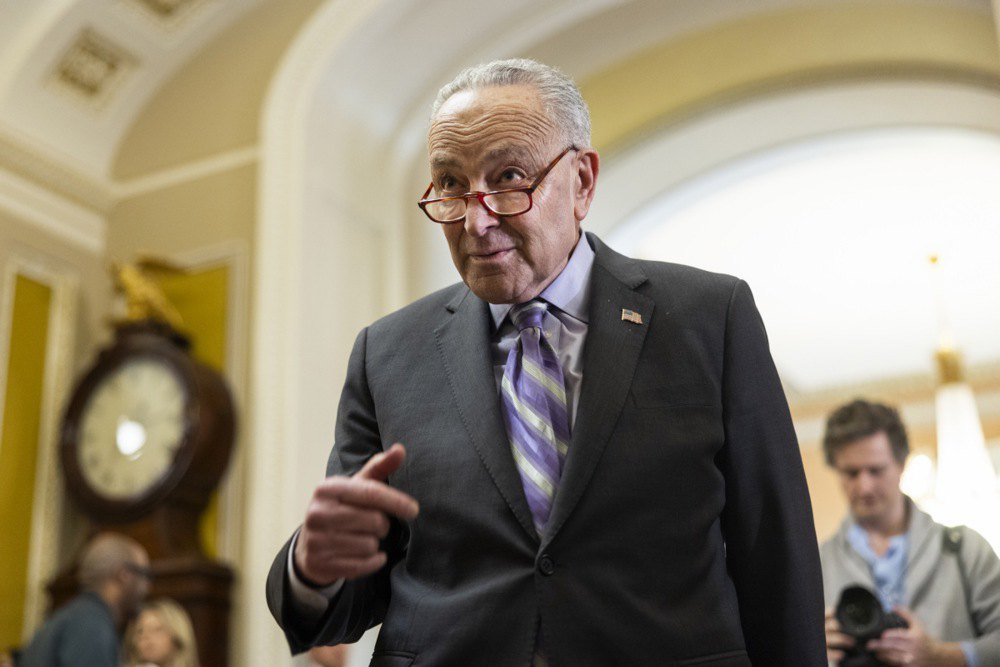
Chuck Schumer, the leader of the Democratic Majority in the Senate, suggested a vote on a new document - a deal without borders: to agree on aid packages totalling $95.3 billion, excluding migration policy issues from the bill.
"Republicans have said they can't pass Ukraine without border. Now they say they can't pass Ukraine with border. I'm giving them a choice," he said on Wednesday.
On 8 February, the US Senate finally voted on a procedural decision to further consider a bill to allocate additional aid to Ukraine, Israel and Taiwan in the amount of $95 billion.
The upper house of the US Congress is expected to vote on the draft law in the near future to pass it on to the House of Representatives, where the main battles over the aid package will unfold.
The New York Times states that the Democrats have managed to put their opponents in an extremely vulnerable position, portraying them as those who do not want to address either national security or border issues.
"If the bill fails, I want to be absolutely clear about something: The American people are going to know why it failed," the US president said in an address to Congress this week "Every day between now and November, the American people are going to know that the only reason the border is not secure is Donald Trump and his MAGA Republican friends."
"For three years, Mr. Biden has struggled to offer voters a compelling answer to the question of why the border has turned into such a crisis on his watch. He has avoided public discussion of the issue as much as possible, preferring to focus his messaging on other priorities. But with Mr. Trump's intervention persuading congressional Republicans to abandon the border deal that they themselves had demanded, Mr. Biden finally has an opportunity to shift from defence to offence," The New York Times said.
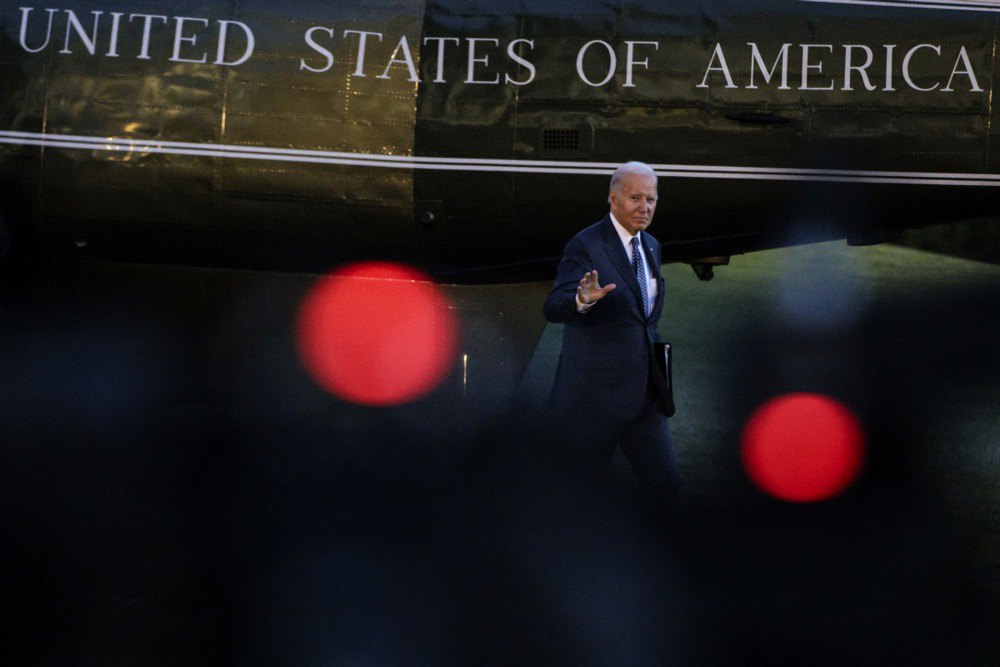
"There is a big internal game going on; both Democrats and Republicans are trying to lure each other into some traps that would give them an advantage in the elections," a source close to the talks with US politicians tells LB.ua. "We need to let them play this game out without getting involved in the internal political processes in the US. At the same time, we need to communicate in such a way that both Republicans and Democrats see their specific interest in Ukraine winning."
What's next?
LB.ua's sources are convinced that the chances of getting help from the United States are rather high.
"We need to convince Congress to support aid for Ukraine - whether it is for us separately or in different packages. And the ongoing vote in the Senate shows that our friends are ready to resolve problematic issues promptly, even despite the difficult domestic political situation, further complicated by the election year," Oksana Markarova told LB.ua. "When the vote on the large Senate package failed, the Appropriations Committee promptly released an alternative bill - without migration policy, containing only aid to Ukraine, Israel and Taiwan - that will allow the House to begin voting on 8 February to end debate on it. If 60 votes are found, then there will be a substantive consideration and, accordingly, we have a high chance of passing it. If there are active debates on certain positions, it may take a little longer. No one can make a clear prediction now, but we are doing everything we can to convey to Congress and everyone else the urgent need for support."
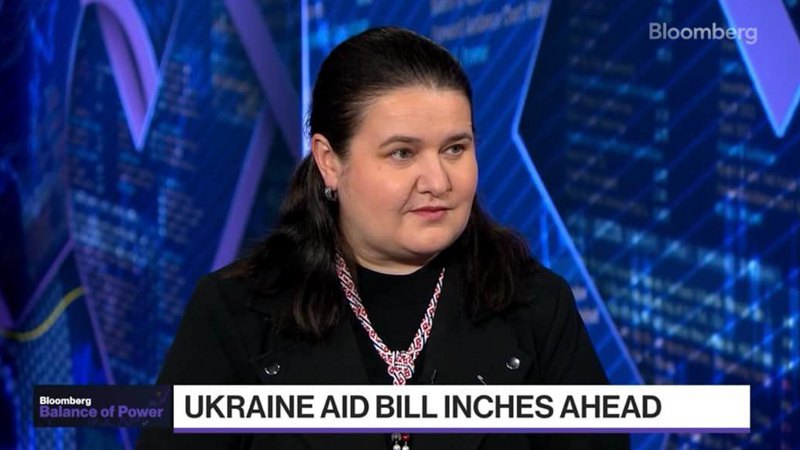
"It is very good that we have received the EU's decision on 50 billion euros - this deprives opponents of the argument that the US bears the entire burden of helping Ukraine. The security guarantee agreements are also very important (the UK laid the groundwork here), which is also an important argument for the Americans," says the LB.ua source. "So I'm almost certain that there will be a decision - closer to the anniversary of the invasion."
Several Ukrainian delegations are currently active in the United States, consisting of representatives of churches, refugees from the occupied territories, and people affected by Russian aggression, and they meet with American politicians.
"This gives a very serious result," said another LB.ua source involved in organising such meetings. "It is important for us that our American partners see that the entire Ukrainian nation is winning the war. Not only the military, but also a woman in Kherson or Zaporizhzhya who lives and works there despite the shelling. She, unlike MPs and officials, has not taken her children abroad - and they need to be protected."
Another important argument for the Americans, in his opinion, should be the internal consolidation of Ukrainians: "Yes, everyone is tired. But we need to get a grip, to give a clear signal to our partners that we can win and that we understand how this can be done. As it was in the first months of the invasion, when there was no HIMARS, but no one met the occupiers with flowers, and this forced the West to reconsider its attitude towards us, to get actively involved, which was not the case in 2014. Unfortunately, we are now giving arguments to our enemies."
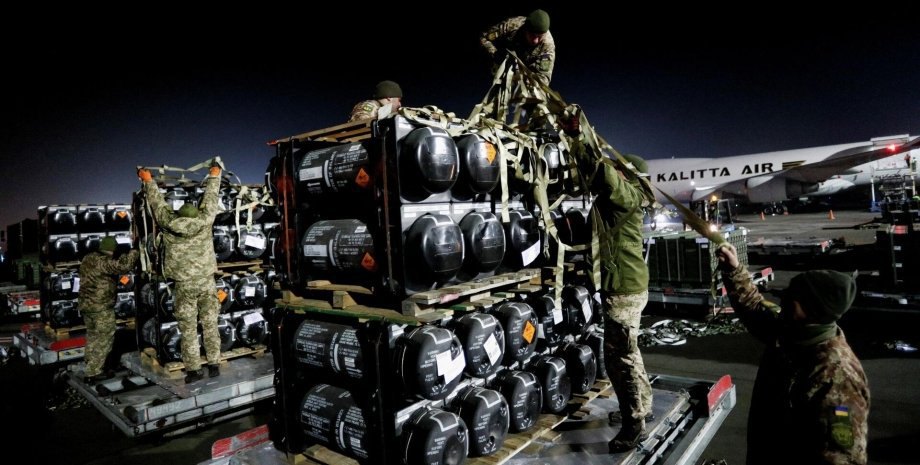
Does Ukraine have Plan B?
Ukraine is not considering a Plan B if Congress fails to pass a resolution to help Ukraine, says a senior member of President Volodymyr Zelenskyy's team who asked to remain anonymous: "We have various strategies, we are working with other partners, but no-one will be able to compensate for the lack of US assistance in full," he says.
Any alternatives to US aid will cost Ukraine more in the future in terms of conditions since the US funding is non-repayable, Finance Minister Serhiy Marchenko is convinced.
"We believe that Congress will make a decision. After all, we see that even the president of the most powerful country in the world, Joseph Biden, spoke about the need to resolve this issue. I received assurances of support from US Treasury Secretary Janet Yellen and representatives of the State Department. They assured not only us, but the whole world," he said in an interview with LB.ua. "So I hope that sooner or later the issue will be resolved. And given this, there is no need to take other measures now as they will have negative consequences."
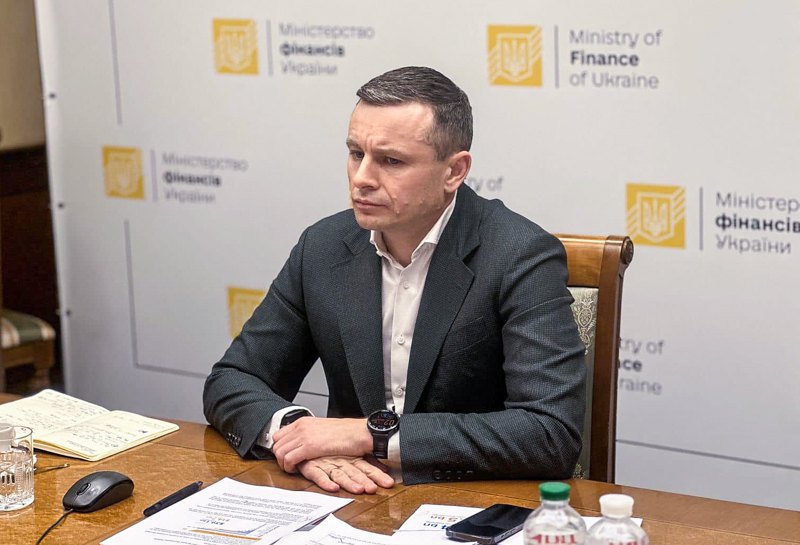
According to Oksana Markarova, Ukraine has many plan Bs in every area.
"In terms of weapons, there is the FrankenSAM project (a combination of Soviet air defence systems and American radars and missiles in one system - LB.ua) and joint production, which is actively pursued by the Ministry of Defence and the Ministry of Strategic Industries, as well as our own production and much more. "The Pentagon is also actively working to accelerate all supplies purchased or allocated during 2023," Markarova said. "As for budget support, the prime minister and the Ministry of Finance are actively working on various sources of funding: accelerating funding from the EU and other donors and partners, using the World Bank and instruments to monetise guarantees. However, this will not replace the US aid, but will help the Ministry of Finance with liquidity management until the US supports the assistance to Ukraine."
According to Marchenko, the most important thing now is to "stay in the boat called the IMF programme".
"This is a key factor," he says. "If the IMF programme is in place, we will be in a less vulnerable position."
"As for Plan B, which everyone keeps asking about. The measures under this plan have either been implemented or are currently being worked on by our team. This includes consolidation of internal resources to ensure that we can get through January and February without any problems in the face of a shortage of donor funds. And additional assistance from the G7 countries and a number of partner countries, such as the Netherlands, Norway, Sweden and others. We are constantly explaining the situation to them, and they are ready to get involved. The work in this direction does not stop. Because everyone understands the potential consequences," Marchenko insists.
Plan C is also clear, the minister assures us: it is to expand the revenue base while minimising the impact on the economy.

"We can't let it happen that we have neither economy nor taxes in the end," he says. "There must be some targeted solutions. For example, areas where we can collect more excise tax: tobacco, alcohol, fuel. I would like to remind you that in early 2022, the government had major liquidity problems and still found mechanisms to finance priority expenditures on time and in full, and only as a last resort used monetary financing from the NBU."
At the same time, it will be difficult to cut budget expenditures, he says.
"The budget does not have any capital expenditures," he reminds us. "The government has cut the road fund and redirected part of the military personal income tax from local budgets to the state budget. There is no special cushion that can be taken and used now."
It is necessary to diversify the sources of funds and resources, agrees Taras Chmut from Come Back Alive.
"But it's not that easy, because, sorry, in this world, few owe us anything," he explains. "What should we do? First, for example, stop sending SBU officers to spy on journalists. Second, we need to fight shady schemes in the economy. Third, we need to become more efficient overall."









